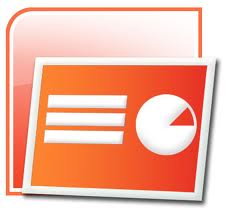Matter and Energy in the Environment
Before learning about the different types of ecosystems throughout the Earth and the life contained within, students must have a basic understanding of how energy flows and matter cycles through these systems. This unit uses a familiar example - the discovery of photosynthesis, to highlight how much our understanding of the ecology of matter and energy has changed.
Matter and Energy Unit Plan
 |
Purpose: This is an outline of the major lessons covered within this unit, their suggested sequence, a time estimate for each topic, and important objectives and vocabulary covered by this unit. Links are provided for any website, video clip, worksheet, or lecture Powerpoint needed by the instructor.
This unit plan is primarily written for instructors of upper-level high school students and introductory college-level students.
Matter and Energy Powerpoint Lecture
 |
Purpose: This lecture gradually guides students through the discovery of the process of photosynthesis, beginning with its misconceptions and moving throughout its history. As each new piece is revealed, modern knowledge of concepts like wavelengths of energy and chemical composition are revealed. Finally, students are given examples of the importance of the constant cycling of matter through ecosystems.
Essential Concepts: Matter, energy, photosynthesis, kinetic, potential, food chain, food web, biogeochemical cycles, water cycle, carbon cycle, sulfur cycle, nitrogen cycle, atom, molecule, element, compound.
Matter and Energy Student Notes Outline
Purpose: Taking efficient notes can be a big challenge for many students, especially when working from a Powerpoint lecture. This outline gives students a means to take notes that guides them toward important concepts and avoids the pitfalls of writing word-for-word or simply not taking notes at all. The outline is written as a series of questions, fill-in-the-blanks, or diagrams.
Essential Concepts: Matter, energy, photosynthesis, kinetic, potential, food chain, food web, biogeochemical cycles, water cycle, carbon cycle, sulfur cycle, nitrogen cycle, atom, molecule, element, compound.
Food Web Analysis Worksheet
Purpose: Food webs and food chains are a basic, fundamental concept of ecology that nearly every student learns once or twice. However, there is a lot more behind the food web than simply "who eats who". This worksheet will take students through a portion of the complex food web found at Yellowstone National Park and have them work with concepts such as trophic level (producer - primary consumer - secondary consumer - tertiary consumer), energy flow, the Ten percent rule, decomposers, and keystone species.
Essential Concepts: Food web, food chain, trophic level, producer, primary consumer, secondary consumer, tertiary consumer, decomposers, Ten percent rule, keystone species.
GPP and NPP of Grass Lab
Purpose: As a plant grows and performs photosynthesis, it does not retain all of the energy that it takes in, also known as Gross Primary Productivity (GPP). Rather, some energy is expended through metabolic processes and is lost as heat. This is called respiration. The remainder, which is kept by the plant, is called net primary productivity (NPP). We can measure and calculate these values by observing and comparing the growth of potted grass in dark and light conditions. This lab must be spread out across three weeks to allow sufficient time for the grass to grow.
Essential Concepts: Gross primary productivity (GPP), net primary productivity (NPP), respiration, photosynthesis
Cycles of Matter Worksheet
Purpose: This worksheet has an unlabeled nitrogen cycle and carbon cycle diagram for students to fill out as practice, with a word bank provided for each.
Essential Concepts: Carbon cycle, combustion, photosynthesis, cell respiration, decomposition, nitrogen cycle, ammonification, denitrification, nitrification, fixation
BBC Documentary: After Life - The Strange Science of Decay
Purpose: This documentary centers around an experiment -- what would happen if a fully stocked kitchen and garden were left to rot for a month? Time-lapse video shows the effects that decomposers have on the food, beginning with flies and continuing with fungi and bacteria. Many related side-topics are also explored, such as the massive overgrowth of trees during the Carboniferous period, before fungi had developed the ability to digest lignin.
Essential Concepts: Decomposition, biogeochemical cycles of matter, carbon cycle, nitrogen cycle, fungi, bacteria.
Energy and Matter in the Environment Study Guide
Purpose: Once the instruction for the unit is completed, students can complete this study guide to aid in their preparation for a written test. The study guide is divided into two sections: vocabulary and short answer questions. The vocabulary is taken directly form the lecture, sequentially. The short answer questions are meant to model the type they may see on the exam.
Essential Concepts: Matter, energy, photosynthesis, kinetic, potential, food chain, food web, biogeochemical cycles, water cycle, carbon cycle, sulfur cycle, nitrogen cycle, atom, molecule, element, compound.
